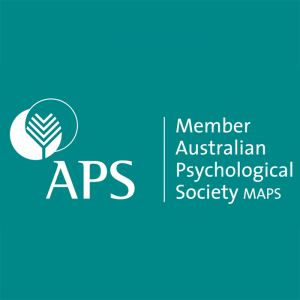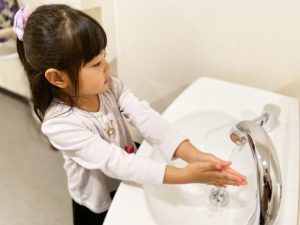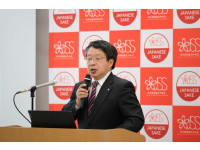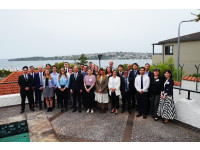◆コロナウイルス流行による不安を鎮めるために:APSメディアリリース(日本語訳)
コロナウイルスと心への影響に関するAPSのメディアリリース
APS、オーストラリア心理臨床学会が、コロナウイルスの流行への心理的な影響についてメディアリリースを出しました。以下、やのが日本語訳いたしました。
不安はよく理解できるものであるがパニックになる必要はない
世界的なコロナウイルスの発生を受けて、Austrian Psychological Societyオーストラリア心理臨床学会は、不安や圧倒されていると感じている人々を助けるためにアドバイスを提供して、人々を安心させようとしている。
オーストラリア心理学会会長であるRos Knightロス・ナイト博士は、人々の反応は、コロナウイルスの流行に懸念を感じるための合理的で理解できる反応であると述べた。しかし、パニックに陥る必要はないとも言っている。
「人間は、未知のものや、突然起こって制御不能に見えるものを恐れるように、生来備わっています」。
「もしあなたがコロナウイルスに不安を感じるなら、医療と科学の専門家がウイルスを封じ込め、感染した人々を治療するための厳格な手順を行っていることを思い出すようにしてください」。
デマを伝えているかもしれないSNSはよく見極めて制限する
ナイト博士は、自分がさらされている情報に注意を払い、虚偽の情報を伝えているかもしれないソーシャルメディアへのアクセスは制限することも奨励している。
「否定的な情報の絶え間ない流れに身をさらすことは、心理的に大きなダメージを与えます」。
「終末論に巻き込まれないように。黙示録(終末が近いといった不安をあおる考え)を警告するソーシャルメディアの投稿を読むのは避けましょう」。
「事実にこだわり、科学的な情報源に頼ることが、自分の気持ちを前向きにとらえ、管理する最善の方法です。」
日常業務や活動をいつものように遂行する
ナイト博士はまた、個人が日常業務をいつものように遂行するために適切な措置を取ることを奨励している。
「冷静で現実的な態度を保ち、できる限り通常の体制を維持しましょう」。
「手を洗う、具合の悪い人との濃厚な接触を避けるなどの衛生習慣を守り、もしマスクをすることで安心するなら、公共の場では適切なマスクを着用しましょう」。
子どもたちに特別な注意を払う
また、親や保護者は、子どもたちに特別な注意を払うべきであり、ウイルスの拡散を取り巻くメディアが子どもたちに与える影響にも注意を払うべきだと付け加えた。
隔離や隔離によって影響を受ける子どももいるかもしれない。「一部の子どもたちは学校から締め出されました。親や養育者は、子供になぜ学校に行けないのか、または友人の1人がなぜ学校にいないのかを注意深く説明する必要があります」。
ナイト博士は、そのような問題を子供たちと議論する最善の方法についていくつかのヒントを提供している。
「深刻な状況に対処するには、子どもに対してオープンで正直であることが最善の方法であるという研究結果があります」。
「ニュースを共有することは、子どもたちが疎外されていると感じず、状況が実際より悪いと想像したり、自分自身を責めたりしないために役立ちます。情報を共有することで、相手を信頼し、評価することができ、相手のレジリエンス(免疫力や回復力)を高めることができます」。
「子供に細かいことを言って情報を詰め込みすぎないようにしてください。少量の情報を提供し、質問があるかどうかを確認しましょう」。
ジェローム・ドレイサミー
https://www.wellnessdaily.com.au/health/easing-anxiety-in-the-wake-of-coronavirus
In light of the global outbreak of coronavirus, the Australian Psychological Society has sought to reassure the public by providing advice to help people who may feel anxious or overwhelmed.
Dr Ros Knight, president of the Australian Psychological Society, said that it is a reasonable and understandable response for individuals to feel concerned over the outbreak. However, she said there is no need to panic.
“As humans, we are hardwired to be afraid of the unknown and of something that appears random and uncontrollable,” Dr Knight said.
“If you find yourself becoming anxious about coronavirus, try to remember that medical and scientific experts are following strict protocols to contain the virus and treat those affected.”
Dr Knight encouraged those who may be feeling anxious to be mindful of the information they become exposed to and limit their access to social media, which may be portraying false information.
“Exposing yourself to a constant stream of negative information takes a huge psychological toll,” she said.
“Avoid reading social media posts that warn of an apocalypse and don’t get drawn into doomsday discussions.
“Sticking to the facts and relying on scientific sources for your information is the best way to maintain perspective and manage your feelings positively.”
Dr Knight also encouraged individuals to take appropriate steps in order to go about their daily tasks as normal.
“Remain calm and practical and continue with your usual regime, as much as you can.
“Observe good hygiene habits, like washing your hands and avoiding close contact with people who are unwell and, if it makes you feel better, wear an appropriate mask in public,” she said.
She added that parents and caregivers should be extra attentive to children and the effect that the media surrounding the spread of the virus might have on them.
Some children may even be affected by quarantine practices and excluded from school, which can be confusing.
“We know that children absorb information from the news, social media and discussions adults have around them.
“Some children have been excluded from school. Parents and caregivers may need to carefully explain to their children why they can’t go to school or why one of their friends is not there.”
Dr Knight provided some tips on how best to discuss such matters with children.
“Research shows that being open and honest with children is the best way to help them cope with serious situations,” she said.
“Sharing the news will help children to not feel excluded, imagine the situation is worse than it really is or, even, blame themselves. Sharing information shows that you trust and value them, which can enhance their resilience.”
“Try not to overload children with too many details. Give small amounts of information, wait and then ask if they have any questions,” she concluded.

Jerome Doraisamy
Jerome Doraisamy is a senior writer for Lawyers Weekly and Wellness Daily at Momentum Media.
Before joining the team in early 2018, Jerome is admitted as a solicitor in New South Wales and, prior to joining the team in early 2018, he worked in both commercial and governmental legal roles and has worked as a public speaker and consultant to law firms, universities and high schools across the country and internationally. He is also the author of The Wellness Doctrines self-help book series and is an adjunct lecturer at The University of Western Australia.
Jerome graduated from the University of Technology, Sydney with a Bachelor of Laws and Bachelor of Arts in Communication (Social Inquiry).
You can email Jerome at: jerome.doraisamy@momentummedia.com.au
この投稿者の記事一覧
概要・お問い合わせ
関連記事
その他の記事はこちら
日本酒輸出額・量ともに前年超え! オーストラリア市場は?
日本酒造組合中央会は2月7日、2024年の海外市場への日本酒輸出に関して、輸出額・輸出量ともに昨年を上回ったことを発表しまし…
在シドニー総領事公邸でJETプログラム帰国者レセプションが開...
2025年1月23日、日本国内の外国語教育の充実と地域レベルでの国際交流を推進する「JETプログラム」の日本からの帰国者歓迎レセ…
2025年は訪日オーストラリア人100万人達成へ!訪日観光セ...
JNTO(Japan National Tourism Organization/日本政府観光局)主催による訪日観光セミナー・商談会「Japan Roadshow 2025」が…












